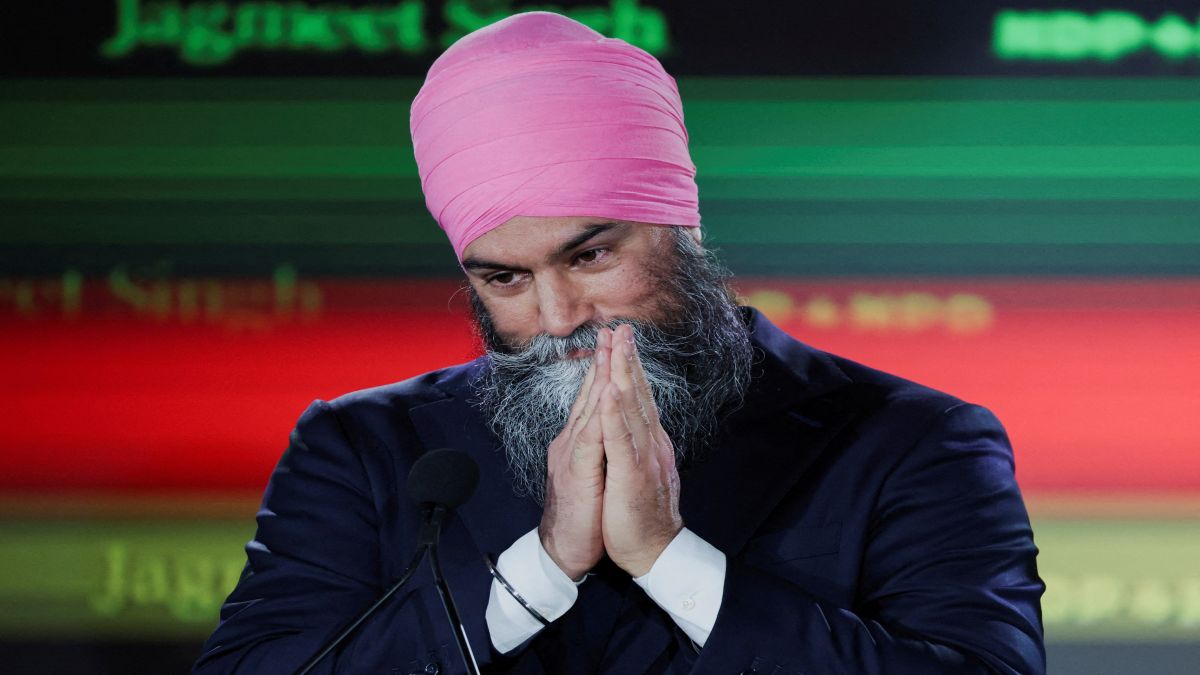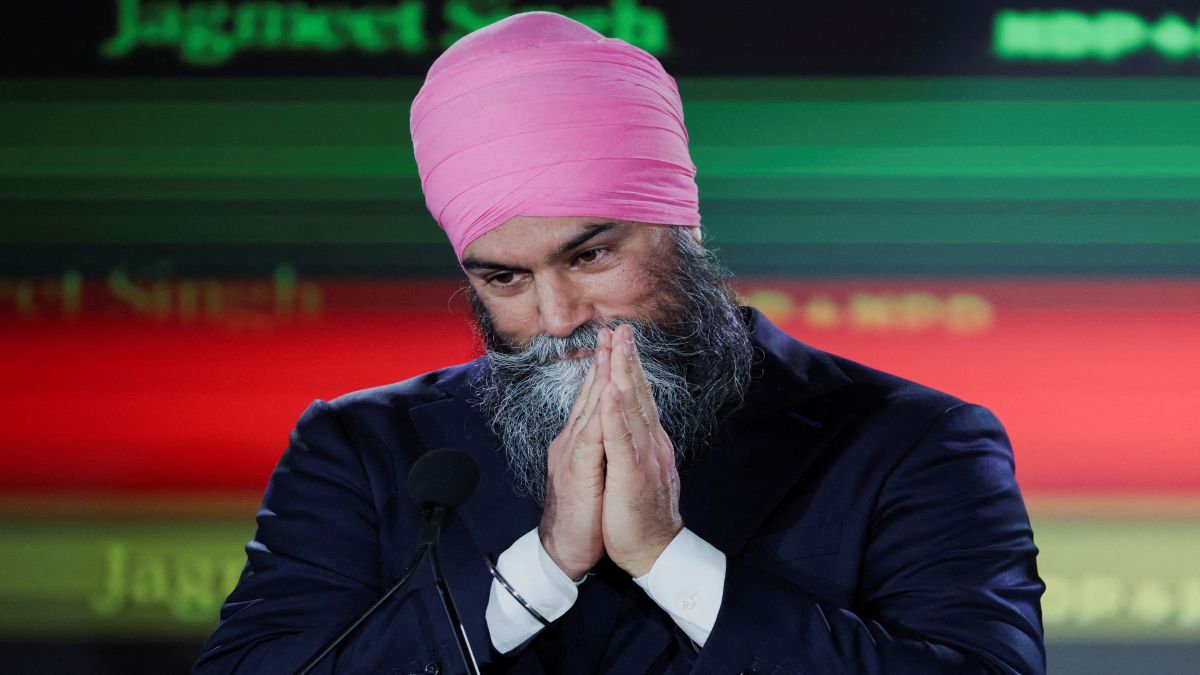The Catholic Church in Oklahoma wants taxpayers to fund an online charter school that “is faithful to the teachings of Jesus Christ.” The Supreme Court could well approve.
St. Isidore of Seville Catholic Virtual School would be the nation’s first religious charter school. A ruling from the high court allowing public money to flow directly to a religious school almost certainly would lead to others.
Opponents warn it would blur the separation between church and state, sap money from public schools and possibly upend the rules governing charter schools in almost every state.
The court hears arguments Wednesday in one of the term’s most closely watched cases.
The case comes to the court amid efforts, mainly in conservative-led states, to insert religion into public schools. Those include a challenged Louisiana requirement that the Ten Commandments be posted in classrooms and a mandate from Oklahoma’s state schools superintendent that the Bible be placed in public school classrooms.
Conservative justices in recent years have delivered a series of decisions allowing public money to be spent at religious institutions, leading liberal Justice Sonia Sotomayor to lament that the court “continues to dismantle the wall of separation between church and state that the Framers fought to build.”
The justices are reviewing an Oklahoma Supreme Court decision last year in which a lopsided majority invalidated a state board’s approval of an application filed jointly by two Catholic dioceses in Oklahoma.
The K-12 online school had planned to start classes for its first 200 enrollees last fall, with part of its mission to evangelize its students in the Catholic faith.
Oklahoma’s high court determined the board’s approval violated the First Amendment’s Establishment Clause, which prohibits the government from making any law “respecting an establishment of religion.”
The state board and the school, backed by an array of Republican-led states and religious and conservative groups, argue that the court decision violates a different part of the First Amendment that protects religious freedom. The Free Exercise Clause has been the basis of the recent Supreme Court decisions.
“A State need not subsidize private education,” Chief Justice John Roberts wrote in one of those decisions in 2020. “But once a State decides to do so, it cannot disqualify some private schools solely because they are religious.”
The case has divided some of the state’s Republican leaders, with Gov. Kevin Stitt and State Superintendent of Public Instruction Ryan Walters supporting the concept of using public funds for religious schools, while Attorney General Gentner Drummond has opposed the idea and sued to overturn the virtual charter school board’s approval of St. Isidore.
A key issue in the case is whether the school is public or private. Charter schools are deemed public in Oklahoma and the other 45 states and the District of Columbia where they operate.
They are free and open to all. Just under 4 million American schoolchildren, about 8%, are enrolled in charter schools.
“Charter schools no doubt offer important educational innovations, but they bear all the classic indicia of public schools,” lawyers for Drummond wrote in a Supreme Court filing.
Those include that they receive state funding, must abide by antidiscrimination laws and must submit to oversight of curriculum and testing. But the schools also are run by independent boards that are not part of local public school systems.
“Charter schools are called public schools, but they’re totally different entities,” said Nicole Garnett, a University of Notre Dame law professor who is a leading proponent of publicly funded religious charter schools. Other Notre Dame professors are part of the St. Isidore legal team.
If the court finds the school is public, or a “state actor,” it could lead to a ruling against St. Isidore. If instead it determines that the school is private, the court is more likely to see this case as it did the earlier ones in which it found discrimination against religious institutions.
That the court even agreed to take on the issue now might suggest that a majority is inclined to side with St. Isidore.
The Oklahoma court is the only one that has ruled on religious charter schools and only eight justices are hearing the case. Justice Amy Coney Barrett recused herself without explanation. Barrett previously taught law at Notre Dame and is close friends with Garnett.
The current court is very familiar with private and, especially, religious education. Six justices attended Catholic schools as children and almost all the children of the justices go or went to private schools, including some religious ones.
Walters, the state schools superintendent, sees the St. Isidore case as “the next frontier” in school choice for parents. He has been an unabashed critic of the separation of church and state and sought to infuse more religion into public schools.
“I see it very clearly, that there’s been a war on Christianity and our schools have been at the epicenter of that,” said Walters, a former high school history teacher elected in 2022 on a platform of fighting “woke ideology” in public schools and banning certain books from school libraries.
“We’re going to give parents more rights in education than anywhere in the country, and that means a free ability to choose the school of your choice, whether it’s a religious education, whether it’s a charter school, public school, home school, all of the above.”
The idea of using public money to fund religious schools is antithetical to the Constitution, said Rachel Laser, president and CEO of Americans United for Separation of Church and State.
“This is religious public education, fully and directly funded by taxpayers. It’s as abject a violation of religious freedom as they come, because it forces taxpayers to fund the heart of religion, religious education for religion that’s not their own,” Laser said.
A group of Oklahoma parents, faith leaders and a public education nonprofit that also sued to block the school argue that religious charter schools in their state would lead to a drop in funding for rural public schools.
St. Isidore would lead to other religious charter schools, said Erika Wright, a mother whose two school-age children attend a rural school district in Cleveland County. “And all of those schools would be pulling from the same limited pot of money that we have for our current brick-and-mortar schools across the state.”
A decision is expected by early summer.
(Except headline, this story has not been edited by Firstpost staff)


)
)
)
)
)
)
)
)
)